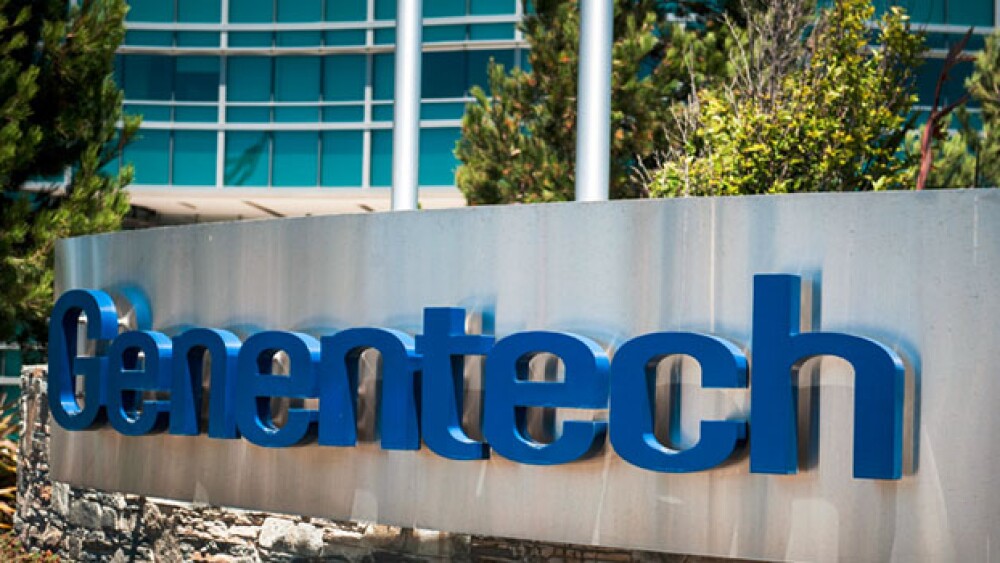Roche subsidiary Genentech snaps up Jecure and its portfolio of preclinical NLRP3 inhibitors aimed at serious inflammatory diseases.
Genentech, a subsidiary of Swiss pharma giant Roche, took a dive into the $20 billion nonalcoholic steatohepatitis (NASH) market with the acquisition of San Diego-based Jecure Therapeutics, a company with a portfolio of preclinical NLRP3 inhibitors aimed at serious inflammatory diseases.
Jecure launched last year with $20 million in funding from Versant Ventures. The company’s preclinical assets are focused on nucleotide-binding oligomerization (NOD)-like Receptor Family Pyrin Domain Containing Protein 3 (NLRP3). The immunomodulatory protein involved in the activation of certain inflammasomes that have been linked to a number of inflammatory and autoimmune disorders such as NASH, as well as liver fibrosis, inflammatory bowel disease and cardiovascular diseases.
Financial terms of the acquisition were not disclosed.
In a statement to BioSpace, James Sabry, global head of Pharma Partnering at Roche, said the company has had a “long-standing interest” in targeting inflammatory pathways that are believed to play a role in a number of serious diseases.
“We’re excited to combine Jecure’s portfolio with our discovery and development capabilities, as well as our expertise in NLRP3 biology, to potentially help people with inflammatory diseases,” Sabry said.
Jeffrey Stafford, president and chief executive officer of Jecure, said Genentech’s acquisition of his company provides a unique opportunity to bring Jecure’s novel NLRP3 inhibitors to patients. He added that Genentech has an extensive history in “translating pioneering science into transformative medicines.”
A severe form of non-alcoholic fatty liver disease (NAFLD), NASH is increasing in part due to the rise of obesity and diabetes diagnoses. Excessive accumulation of fat in the liver induces chronic inflammation, which causes progressive fibrosis, cirrhosis and eventually end-stage liver disease. In the United States NASH affects 2 to 5 percent of people. Because NASH resembled alcoholic liver disease, yet appears in people who are not excessive drinkers, NASH is sometimes called the “silent” liver disease. The prevalence of NASH is increasing across the globe and is expected to be the leading indication for liver transplant by 2020. Despite that, awareness of the disease is somewhat low. It is considered an area of unmet medical need, and aside from weight loss, increased physical activity, and avoiding alcohol, there are no treatments.
The increasing reach of NASH has resulted in a market projected to hit $20 billion within the next seven years. As a result, it’s a crowded research area with many companies racing to develop treatments. There are nearly 200 treatments in the pipeline of companies. Multiple companies are focused on the development of Nash drugs, including startup company Terns Pharmaceuticals, which licensed three NASH programs from Eli Lilly. Companies like AstraZeneca, Takeda Pharmaceutical, Allergan and Gilead Sciences have all invested heavily into the space. Intercept Pharmaceuticals and GENFIT both have drugs in phase III. In May, Pennsylvania-based Madrigal Pharmaceuticals announced positive topline data from its Phase II clinical trial of MGL-3196, a liver-directed thyroid hormone receptor-beta-selective agonist, in patients with biopsy-proven NASH.





